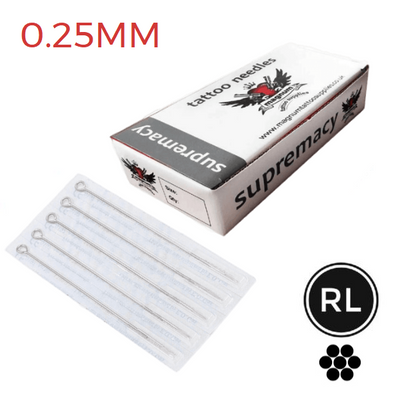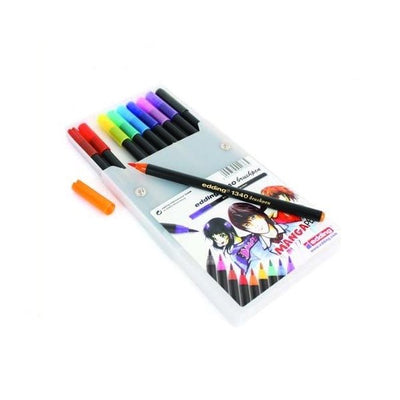Tattoos have become a powerful medium to tell one's story. But as more individuals flock to tattoo shops, eager to etch their narratives onto their skin, a growing concern casts a shadow over their enthusiasm: the escalating costs.
For many, the dream of acquiring a permanent piece of art is overshadowed by the looming question – Are tattoo prices becoming unsustainable? This growing concern, felt deeply by seasoned tattoo enthusiasts and newcomers alike, challenges the balance between artistry and affordability.
As we delve deeper into this issue, we must understand the factors driving these prices and whether the cost truly matches the value. Let's explore the world of tattooing and the economics behind it to see if our concerns are justified.
Factors contributing to rising tattoo prices
Increased demand
As tattoos have gained wider acceptance in mainstream culture, more people are looking to get inked. From a simple supply-demand perspective, as demand goes up and supply remains constant or grows at a slower pace, prices are likely to rise. Popular culture, celebrities, and societal shifts have contributed to making tattoos more fashionable than ever before.
Higher quality equipment
With advancements in technology, there have been big improvements in tattoo equipment. Better tattoo machines, tattoo inks, and other tools are often more expensive. Artists who invest in these high-quality tools are likely to pass on some of the costs to the customers.

The use of higher quality inks and equipment not only ensures sharper and long-lasting tattoos but also a safer and more comfortable experience for the client. Thus, the increased average tattoo prices can be justified by the enhanced experience and product quality.
Specialisation/quality and skill of the artist
As with any profession, specialisation often comes with a premium. Tattoo artists who specialise in particular styles or techniques can command higher prices. Additionally, artists with a significant portfolio, reputation, and years of experience will naturally charge more than those just starting out. This price can also be reflective of the hours of effort they put into mastering their craft and the unique touch they bring to each tattoo.
Studio overheads
Running a tattoo studio is like running any other business. There are overheads such as rent, utilities, insurance, and staff salaries. In prime locations, these costs can be significantly high. Furthermore, maintaining a hygienic and sterile environment, which is crucial in tattooing, adds to the operational costs. As the cost of doing business rises, these expenses are often passed down to the customers.
If you are curious about the associated costs of the tattoo business, don't miss our detailed article on "How much does opening a tattoo shop cost?" to understand all the factors fully.
Tattoos: A luxury, not a necessity
Luxury goods and services
A luxury good or service is defined as something that isn't essential but adds to one's pleasure and comfort. In contrast to essentials which meet our basic needs, luxuries offer us indulgence and satisfaction. Tattoos, especially when crafted by reputed artists or in unique styles, can be seen as distinctive art pieces, analogous to luxury items. Such items often derive their worth from exclusivity, craftsmanship, and cultural resonance.
As with high-end designer products, individuals seek tattoos as markers of quality and personal significance. The economic boom and growing disposable incomes in many societies have elevated the consumption of luxury goods and services, with tattooing riding this same wave.
Personal choice
For many, tattoos transcend mere luxury, representing a deep-rooted expression of their identity, convictions, or pivotal life moments. The decision to get body art is profoundly personal and extends beyond a mere impulsive buy.

Financially, opting for a tattoo demands prioritisation, with some choosing to forgo other luxuries or save diligently to invest in this enduring artwork. Unlike other luxury items that can be resold or inherited, tattoos come with an inherent permanency. This underscores the gravity of the personal commitment and choice involved in the tattooing process.
Prices reflect the value of permanent art
Permanence
- The very nature of a tattoo is permanent. Once you get a tattoo, it's there to stay (unless you go through potentially painful and expensive removal procedures). This permanence means you're not just paying for the ink and the service; you're investing in a lifelong piece of art that will travel with you wherever you go.
- Unlike many other products or services that may wear out, get replaced, or become obsolete, a tattoo remains a consistent part of your identity, whatever the tattoo size is. Therefore, when determining the price, this eternal value is factored in.
Skill and expertise
- Tattooing is not just about putting ink on skin; it's a craft. The precision, understanding of colour dynamics, knowledge of skin types, and countless hours of practice differentiate an amateur from a seasoned tattoo artist.
- Tattoo artists spend years honing their skills. From learning how to handle the equipment to understanding the nuances of different tattoo styles, it’s a continuous journey of growth and learning.
- The price often reflects the artist's journey, from their education to their mastery. When you pay a premium, you're compensating for the artist’s expertise, ensuring that the permanent mark on your body is of the highest quality.
Customisation
- Unlike many other items, tattoos are often deeply personal and customised to an individual's desires. Whether someone is looking for a half-sleeve tattoo or even a small tattoo, it's not a one-size-fits-all product. Artists often spend hours, if not days, preparing the perfect design, consulting with clients, making modifications, and ensuring that the tattoo tells the story the wearer wants.

- This bespoke service, where artists cater to specific individual requirements, adding a personal touch to every curve and shade, justifies the price. Custom designs require not only artistic skill but also an understanding of the client's vision, further emphasising the significance of the tattoo cost.
Curious about what you should realistically budget for your next tattoo? Read our comprehensive article on "How much does a tattoo cost? Budgeting tips". Be informed, be prepared, and wear your art with pride.
Conclusion
The question of tattoo prices reaching unsustainable levels is a valid concern in today's rapidly evolving tattoo industry. As tattoos transition from being a subcultural statement to a widespread form of self-expression, the cost implications become more prominent.
While for some, the rising average tattoo costs signify a luxury and an emblem of quality, others might feel the pinch and view it as a barrier to accessing this art form. Ultimately, the sustainability of tattoo prices hinges on a balance—where artists are fairly compensated for their expertise, and individuals still find value in the investment, ensuring tattoos remain both an art and a cherished personal choice.



























































 Studio supplies
Studio supplies












 Power & batteries
Power & batteries








 Aftercare
Aftercare





















 Apprentice
Apprentice


 Piercing & jewellery
Piercing & jewellery







 PMU supplies
PMU supplies




 New arrivals
New arrivals
 Gift vouchers
Gift vouchers
 Shop all
Shop all















































